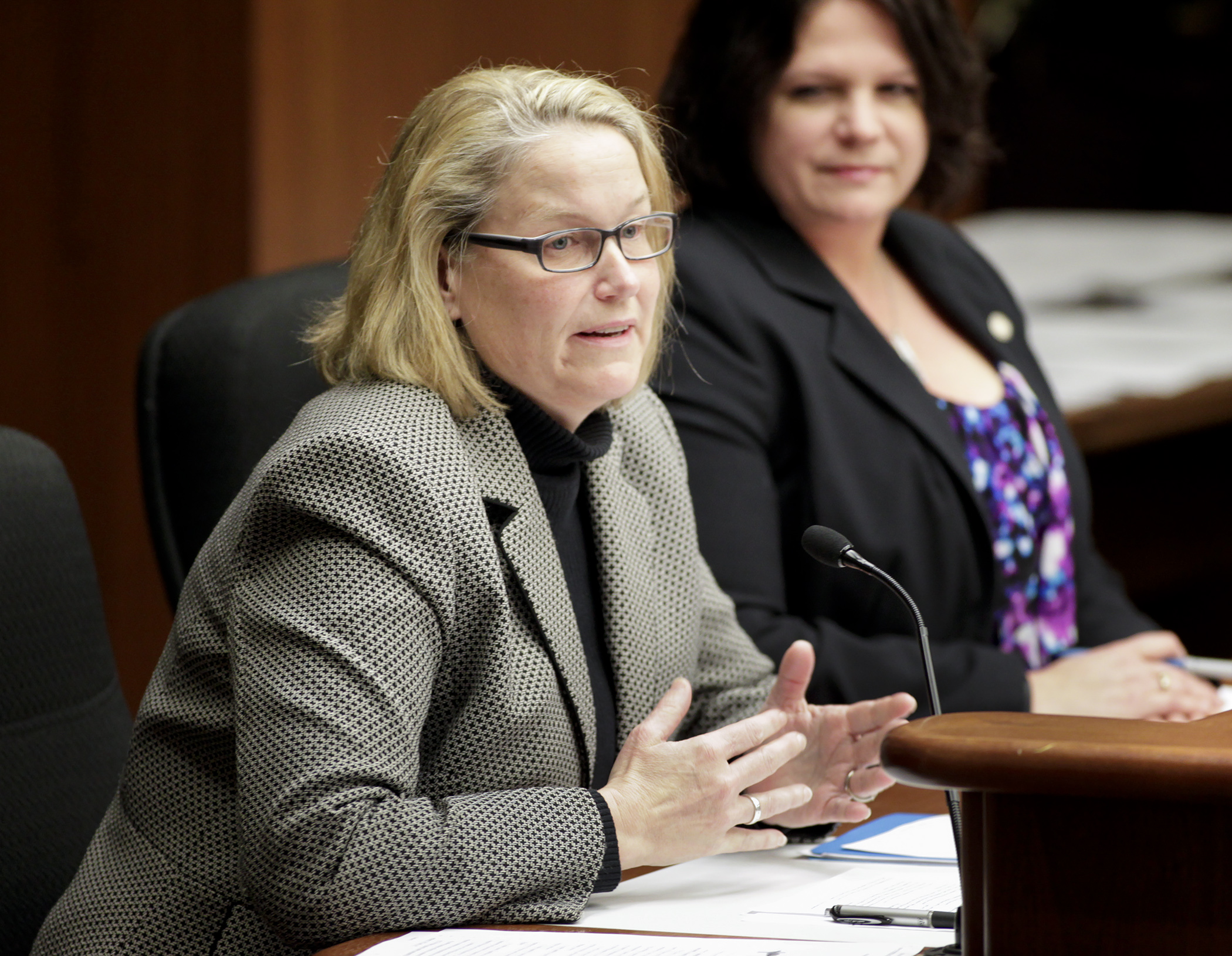Study sought for free electronic tax filing
An estimated 85 percent of Minnesotans now file their individual tax returns electronically. However, there is usually a cost to do so.
That could change.
Sponsored by Rep. Cheryl Youakim (DFL-Hopkins), HF1957, as amended, requests $175,000 from the state’s General Fund to study free electronic filing options for individual income tax filers.
“The Department of Revenue would like to prepare a request that would include what the system would cost if we would move to this free mode, vendor capabilities, security, accessibility,” she said. “[People] find filing electronically quicker, easier and it leaves less room for error as it walks them through the process.”
A report would be due the Legislature by March 16, 2017.
It was held over Thursday by the House State Government Finance Committee for possible omnibus bill inclusion. A companion, SF1678, is sponsored by Sen. Ann Rest (DFL-New Hope). It awaits action by the Senate Taxes Committee.
 Terri Steenblock, assistant commissioner on individual taxes at the Revenue Department, answers a question on Rep. Cheryl Youakim’s bill, HF1957, which would give the department $175,000 to study free electronic filing options for individual income tax filers. Photo by Paul Battaglia
Terri Steenblock, assistant commissioner on individual taxes at the Revenue Department, answers a question on Rep. Cheryl Youakim’s bill, HF1957, which would give the department $175,000 to study free electronic filing options for individual income tax filers. Photo by Paul Battaglia“Taxpayers are telling us they want a free electronic solution that does more than allow them to fill in a PDF copy of a tax return and email it to us,” said Terri Steenblock, assistant commissioner on individual taxes at the Revenue Department. “They want a solution that works for all taxpayers and not just those who have a simple return, i.e. no worksheets or schedules.”
She said filing costs depend on many variables such as a preparer’s fee structure, if the return is filed on paper or electronically, and what the department must do to review the return. “This bill allows us the opportunity to research a free-file solution. … It would also give us time to work with consumer-based vendors to determine what other possible solutions may be available.”
The bill was met with skepticism by some members.
“For 15 percent it seems like a study that may be a solution looking for a question,” said Rep. Tony Albright (R-Prior Lake). Rep. Mark Anderson (R-Lake Shore) said he “can’t fathom” spending this kind of money for a study.
Albright also wondered why MN.IT, the state’s central information technology organization, would not be part of, or perform, the study.
“I have reservations from an IT perspective of who’s going to be doing this,” said Rep. Jim Nash (R-Waconia). “I also think an 85 percent saturation rate is about as good as you’re going to get.”
“It is a way that we can provide a service for our constituents for something that we are required to do,” Youakim countered. “It’s not a requirement to get more people to file online.”
Rep. Michael Nelson (DFL-Brooklyn Park) expressed concern about people who don’t have Internet access, especially the elderly.
“I want to make sure we’re not walking down that road to say it’s only 15 percent [who file paper returns], so let’s go to all electronic filing and now you’re eliminating a bunch of people who aren’t going to be able to get their taxes done.”
Steenblock emphasized the potential change would not eliminate paper tax returns and is just another filing option for taxpayers.
Related Articles
Search Session Daily
Advanced Search OptionsPriority Dailies
Stable budget outlook projects $3.7 billion surplus now, no deficit in next biennium
By Lisa Kaczke The projected surplus for Fiscal Years 2026-27 is now higher than it was in the November estimate, and no deficit is projected for the next biennium.
“Minnesota’s budge...
The projected surplus for Fiscal Years 2026-27 is now higher than it was in the November estimate, and no deficit is projected for the next biennium.
“Minnesota’s budge...
Legislative leaders set 2026 committee deadlines
By Lisa Kaczke Legislative leaders on Tuesday officially set the timeline for getting bills through the committee process during the upcoming 2026 session.
Here are the three deadlines for...
Legislative leaders on Tuesday officially set the timeline for getting bills through the committee process during the upcoming 2026 session.
Here are the three deadlines for...